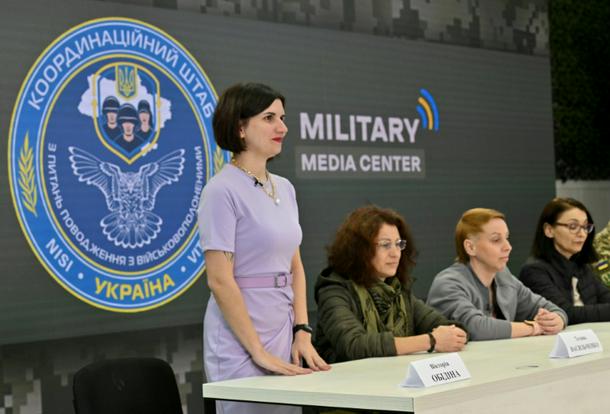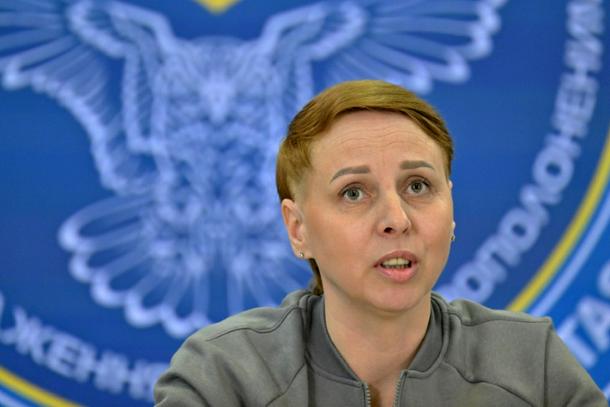
Former prisoners, including medic Tetyana Vasylchenko spoke of packed prison cells, hunger, physical abuse and humiliation
Kyiv (Ukraine) (AFP) - When Ukrainian medic Tetyana Vasylchenko was released from Russian captivity and, on the bus back to freedom, handed a Ukrainian flag, she finally broke down.
“I had never cried, even when I lost comrades,” Vasylchenko told journalists. “But when I was given a Ukrainian flag on the bus, I burst out crying.”
Vasylchenko and 107 other women were freed from Russian detention last week as part of a long-negotiated prisoner exchange with Moscow.
Four of the women spoke to journalists in Kyiv on Wednesday to recount what they have lived through: packed prison cells, hunger, physical abuse and humiliation.

Four former prisoners Viktoria Obidina, Tetyana Vasylchenko, Inga Chikinda, Lyudmyla Guseynova (left to right) agreed to speak to journalists
“The conditions in detention were horrendous,” said Viktoria Obidina, a military nurse, who was captured at the Azovstal steel plant that became the symbol of Ukrainian resistance.
Inmates were “packed like sardines” in jail, food was repulsive and they were rarely allowed to go outside for walks, she said.
Speaking to AFP earlier this week, Obidina said she had been held in the notorious prison in the Russian-occupied town of Olenivka.
Her captors told her that her daughter, who left the steel plant with Ukrainian civilians, had been sent to an orphanage.
- ‘These people are monsters’ -
Women prisoners were subjected to “intense psychological pressure” and constantly humiliated, said Vasylchenko.
“Their favourite thing was to say ‘Ukraine doesn’t want you. No one is swapping you because everyone forgot about you. Who needs you, women?’” Vasylchenko recalled.
The detainees were held “in an information vacuum, they were telling us how everything in our country was going badly.”

'These people are monsters,' said Inga Chikinda who lost eight kilos and developed a stutter while imprisoned
Authorities in Kyiv estimate that a few thousand Ukrainians are still being held by Russia as prisoners of war.
Guseynova, a volunteer from the eastern Donetsk region, spent three years in captivity. She was detained in 2019 by pro-Russian separatists, accused of making pro-Kyiv statements to orphaned children she was taking care of.
Guseynova was too traumatized to speak about what she had lived through.
“Too little time has passed since I was liberated, it’s difficult,” she said.
The trauma was also painfully fresh for Inga Chikinda, an army marine.
“I am not ready to speak about physical abuse just yet,” Chikinda, who lost eight kilos and started stuttering after being detained, said.
“These people are monsters.”